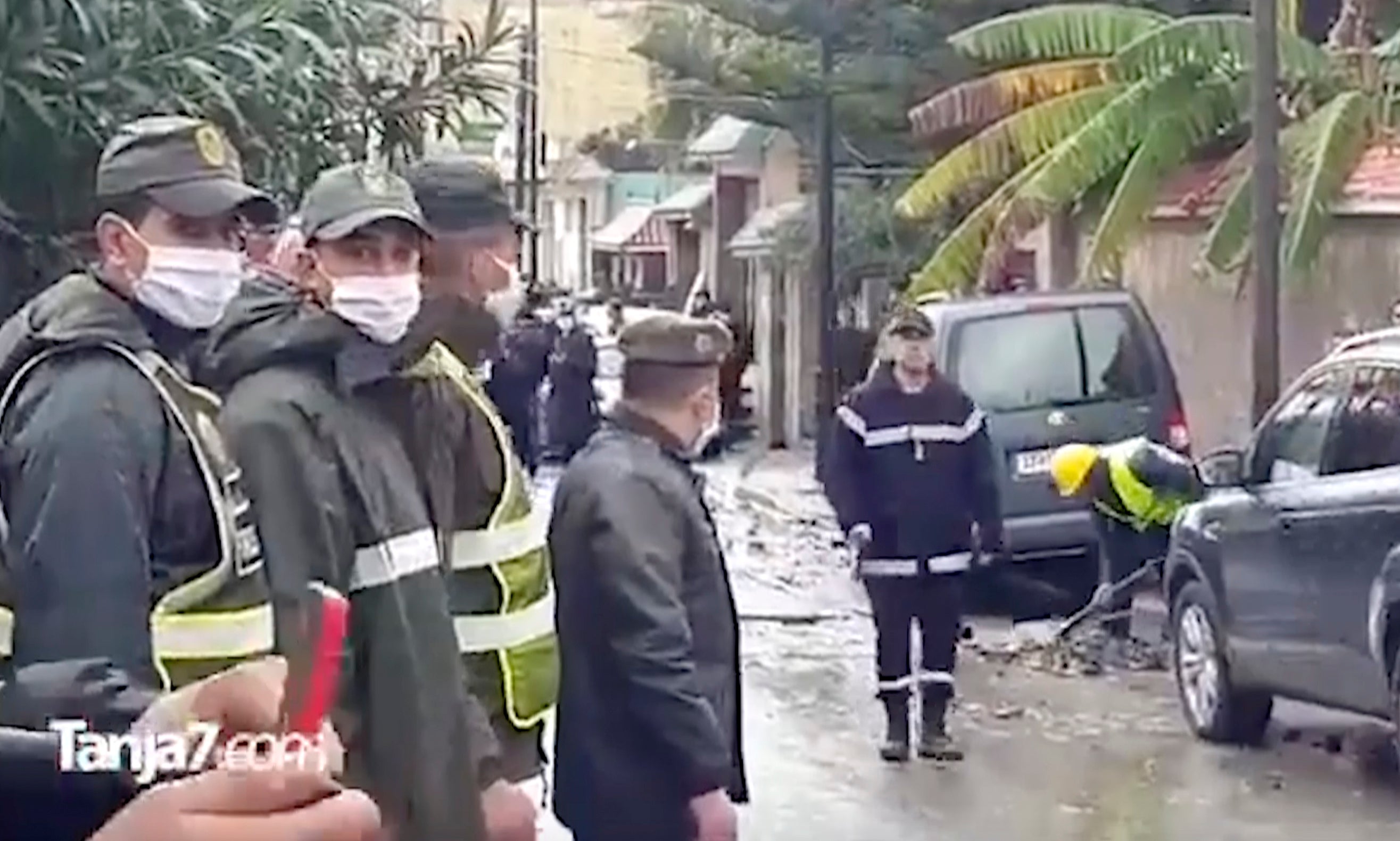28 garment workers killed in flooded factory in Morocco
A medical official has told Moroccan state television at least 28 workers died when heavy rains flooded an illegal garment factory in Tangier

Your support helps us to tell the story
From reproductive rights to climate change to Big Tech, The Independent is on the ground when the story is developing. Whether it's investigating the financials of Elon Musk's pro-Trump PAC or producing our latest documentary, 'The A Word', which shines a light on the American women fighting for reproductive rights, we know how important it is to parse out the facts from the messaging.
At such a critical moment in US history, we need reporters on the ground. Your donation allows us to keep sending journalists to speak to both sides of the story.
The Independent is trusted by Americans across the entire political spectrum. And unlike many other quality news outlets, we choose not to lock Americans out of our reporting and analysis with paywalls. We believe quality journalism should be available to everyone, paid for by those who can afford it.
Your support makes all the difference.Heavy rains flooded an illegal garment factory in the northern Moroccan city of Tangier killing at least 28 workers Monday, state television quoted a medical official as saying.
That raised the death toll from 24, reported earlier by the Moroccan news agency MAP
Local authorities said firefighters and emergency workers rescued 10 people from the factory, in the basement of a residential villa. Rescuers searched for others who might have been trapped in the sudden flooding.
The total number of laborers at the site wasn't immediately known. An investigation was opened.
A shaken unidentified woman who emerged from the flooded basement told TanjaNews, a local site, that no one was prepared for the deadly deluge.
“There was nothing to worry about. We were working as usual,” the woman said. “And then because it was raining, as you can see ... the water started entering, a little water, even my shoes didn't get wet. But suddenly ..." She couldn't finish her sentence.
To meet growing international demand, numerous factories in Morocco, notably in Casablanca and Tangier, rely on unregulated shadow factories to speed up production and meet deadlines. Factories subcontract to such illegal units to better compete with cheaper Chinese and Turkish products.
Such hidden factories are mainly located in residential areas and up to 40 people often work in them, sometimes minors.
Long hours and low wages are a mark of such illegal work, usually in unsafe conditions, without fire extinguishers, emergency exits and indoor plumbing.